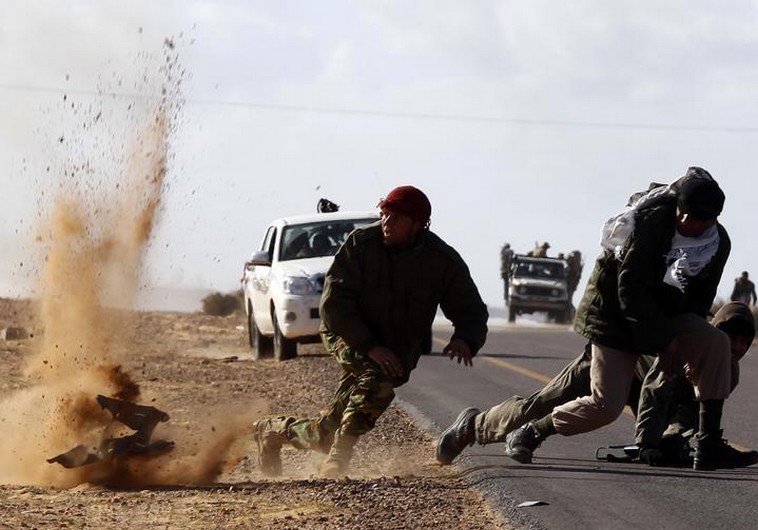Could ISIS’ foray into North Africa draw another Western intervention in Libya?
By ARIEL BEN SOLOMON/J.Post/02/21/2015
The expansion of the Libyan conflict from an intra-state conflict to one involving other states has increasingly gathered momentum since late 2014, Prof. Yehudit Ronen of the political science department at Bar-Ilan University told The Jerusalem Post on Thursday.
These threats could aggressively deepen the insecurity and violent chaos, and further erode Libya’s territorial integrity.
“The Western intervention in the country seemed to many in Libya and the West at the time of Gaddafi’s downfall in August 2011 as a glorious victory, paving the way for a better future dominated by a democratic government, more individual rights, and enhanced relations with the West and Libya’s surrounding geostrategic environment,” Ronen explained.
However, the opposite occurred and “the country is on the verge of total collapse,” she said. A mixture of armed militias, with the Islamist groups at the head, have undermined internal security. One of the main centers of the fighting is in the oil-rich eastern region of Cyrenaica, which has exhibited a growing desire for greater autonomy.
This area is known for the presence of powerful jihadist groups including the al-Qaida-linked Ansar al-Shari’a, said Ronen. For example, in Derna, a port city in Cyrenaica, hundreds of mujahideen with combat experience from wars ranging from Afghanistan, Iraq, and Syria are active, she said. This is also a stronghold of Islamic State, which set up base there in fall 2014.
About a week ago, Islamic State allied itself with supporters of the former Gaddafi regime, including various tribes, gaining strength also in the area around Sirte in the center of the country, continued Ronen. “Various voices in Libya and its Arab and African surroundings have raised a growing call for another round of Western military intervention,” Ronen said.
Elijah J. Magnier, the chief international correspondent for the Kuwaiti Al-Rai newspaper, told the Post that Egypt is the only country that can send troops to Libya, and predicted that the most the West would do is carry out air strikes. “Libya will definitely get much more violent than it is today,” he said.
Relating to another newly explosive conflict, in Yemen, Magnier says that “the GCC [Gulf Cooperation Council] will not react to Yemen by sending troops or financing [Sunni groups] AQAP [al-Qaida in the Islamic Peninisula] or Islamic State” to counter the Shi’ite Houthis that now control Yemen. “This is due to the lesson learned in Iraq and Syria,” he said.
While the international community and Arab states oppose the Houthi coup, the Shi’ite group has been given a free hand, which has allowed Iran to impose its will on the country, as it already did in Iraq.
Jonathan Schanzer, vice president for research at the Foundation for Defense of Democracies and a former terrorism finance analyst at the US Department of the Treasury, told the Post that “the chaos in both Yemen and Libya have the potential to worsen significantly. “One only needs to look at Syria for a glimpse at how bad things can get,” he said. “One thing to watch for is the impact of the interventions by Jordan and Egypt,” he noted.
















